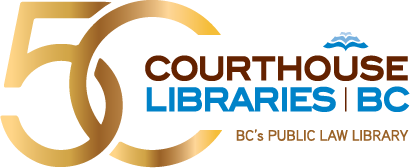We wanted to start the year off by highlighting one of the projects we’re most proud of accomplishing in 2020: our new set of Reference Tools!
These online guides were created to supplement training and support you in doing legal reference work. We know legal reference is just one aspect of your day-to-day, but like anything, it takes regular practice and exposure to learn. Having these guides readily accessible to you means you can consult them anytime a legal reference question comes your way. Read on for a description of each and links to each guide.
You'll also find corresponding downloadable handouts that link back to the more extensive online guides. Print them and keep them on hand at the reference desk, or bookmark the webpages for ready access, and of course, feel free to share widely with colleagues!
If you haven’t had the chance to check them out, here’s a quick roundup:
Legal Information & Legal Advice
This set of guidelines is meant to help you distinguish your own professional and personal comfort in supporting people looking for legal information or support services within our professional boundaries as information providers. It includes scenario-based examples and tips for navigating this complex area of legal reference work, including how to identify when a patron is looking for legal advice, how to set boundaries and how to make an effective referral to a legal help program.
Legal Information and Legal Advice Handout
Guide to Legal Terminology
This guide provides clarity around what legal terms mean and what terms can be most helpful when you’re searching for information on legal topics. It is broken up into sections by type of term (e.g.: court documents or court process) and area of law (e.g. family law, wills & estates), and also includes a legal translation section, which gives the accurate legal term for commonly misused phrases, such as ‘living will” or ‘pardon’. You’ll also find links to other, more comprehensive trusted online legal glossaries. (Given the type and length of this guide, there is no corresponding handout)
Helping Patrons with Court Forms
This guide is framed around the three most common questions we receive around forms: Where are they are? Which ones do I need? and How do I fill them out? It includes basic troubleshooting tips and links to online and print resources that can help you determine which court forms someone needs for their issue, some options for help in filling them out, and clarity into the procedures they’ll need to follow when filing forms with the court.
Helping Patrons with Court Forms Handout
Plain language legal resources
This features links to online legal information sources written in plain language. All are trusted and vetted, meaning you don’t need to worry whether the information you find here is accurate or if there are any unexpected costs. We’ve organized the page by area of law, including the link and a small summary of each resource so you know which resources are best suited to which types of questions.
Plain Language Legal Resources Handout
Clicklaw & Clicklaw Wikibooks
As these are both such great resources for finding BC based information on so many legal topics, these how-to handouts give an overview of what you can find within them and the basics of how to use them online.
Clicklaw Wikibooks: An Introduction
What’s coming for 2021?!
GRANTS! As you may know, last year's events caused us to put our grant program on hold, but this year, we're back on! We're delighted to say that BC public libraries can expect grant offer letters this spring!
Also, we've been working on shifting our training program to a virtual environment, and are super excited to launch our new model with Fraser Valley Regional Library in late January. If you are interested in training, please get in touch with us at lawmatters@courthouselibrary.ca.
We've got a few other projects in the making, stay tuned for more!
